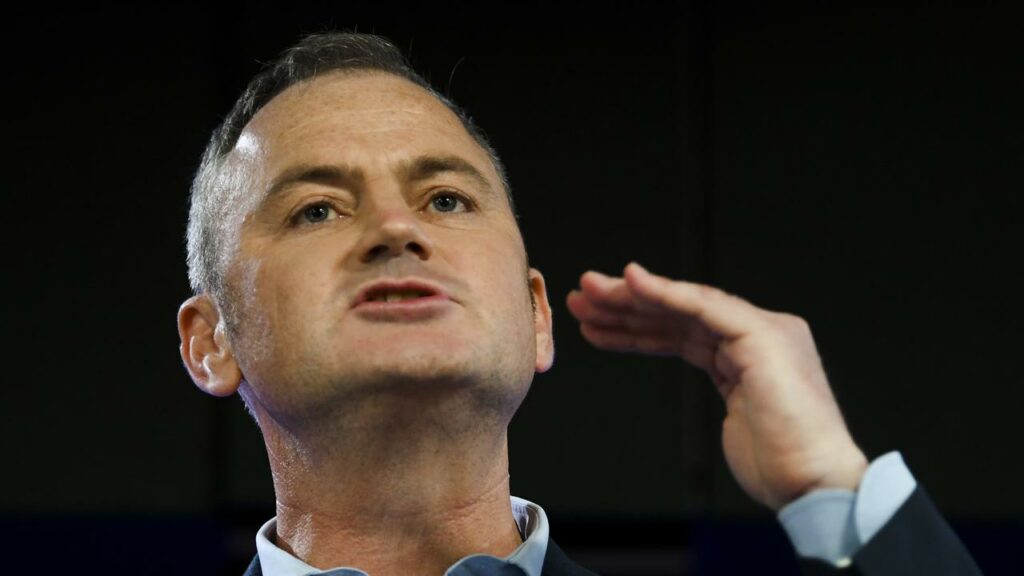Climate group calls for donations overhaul
Andrew Brown and Paul Osborne |

Caps on political donations to candidates ahead of federal elections would only further entrench advantages to incumbents and major parties, an inquiry has been told.
Climate 200, the organisation that backed the election of teal independents at this year’s poll, have called for donation law overhauls to level the political playing field for candidates.
The group’s convenor Simon Holmes à Court told a parliamentary committee examining the federal election possible caps on donations would make it more difficult for candidates not backed by major parties to get a leg up.
“It would entrench incumbents and disadvantage new entrants,” he told the committee on Thursday.
“It will further skew the playing field, so new entrants will struggle to mount competitive campaigns.”
Mr Holmes a Court said incumbents had the benefit of taxpayer funded communications budgets and access to the electoral roll, which would make their campaign efforts easier.
The groups’s convenor said the caps would mean independent candidates would often be unable to assume large donations to be competitive with major parties.
“Independent campaigns have bootstrapping issues and start with literally nothing, but incumbents start with hundreds of thousands of dollars of benefits accrued over the political cycle” he said.
Climate 200 also backed calls for caps on the maximum spend for candidates to be applied on an electorate-by-electorate basis, should the measures be agreed.
Mr Holmes à Court said the expenditure caps would allow for a major party to pool more of its money into marginal seats, while independent candidates would have a much smaller cap.
“It’s difficult to erase all benefits (of incumbency) but we should recognise them, and make sure that we don’t put constraints on those who don’t enjoy them,” he said.
Labor’s national secretary Paul Erickson, who attended the hearing, called for a reduction of the donation disclosure threshold from $15,200 to $1000, as well as real-time disclosure.
The party has also offered support to a proposal for a single, national electoral roll as a way of reducing disenfranchisement.
Australian Electoral Commissioner Tom Rogers said having one roll was a “sensitive and complex issue” and the commission had worked closely with state bodies to reduce discrepancies.
He said before a concerted effort was launched there had been a divergence of a “couple of hundred thousand electors” between the federal and state rolls.
“We worked to get that down to a very small number,” Mr Rogers said.
After he presented his evidence, the committee hearing was disrupted by a former Queensland minister who hastily took up a chair next to the departing commissioner.
Steve Dickson, who served as a minister in the Newman government and is a former One Nation leader, unsuccessfully ran as an independent candidate for a Senate seat in Queensland at the May election.
Mr Dickson was shut down by committee chair Kate Thwaites, who told him “this is for committee members”.
She temporarily suspended the hearing as security escorted Mr Dickson from the room.
Just before the hearing, Mr Dickson posted on his Facebook that Thursday marked “the only significant thing left to do to speak up about what happened during the federal election when I ran for a seat in the Senate”.
Mr Dickson’s written submission to the committee was published on its web page but was heavily redacted for legal reasons.
“I do not accept, that in a Democratic Country, we would allow voters to be misdirected or misled without consequence,” he wrote in the submission.
AAP